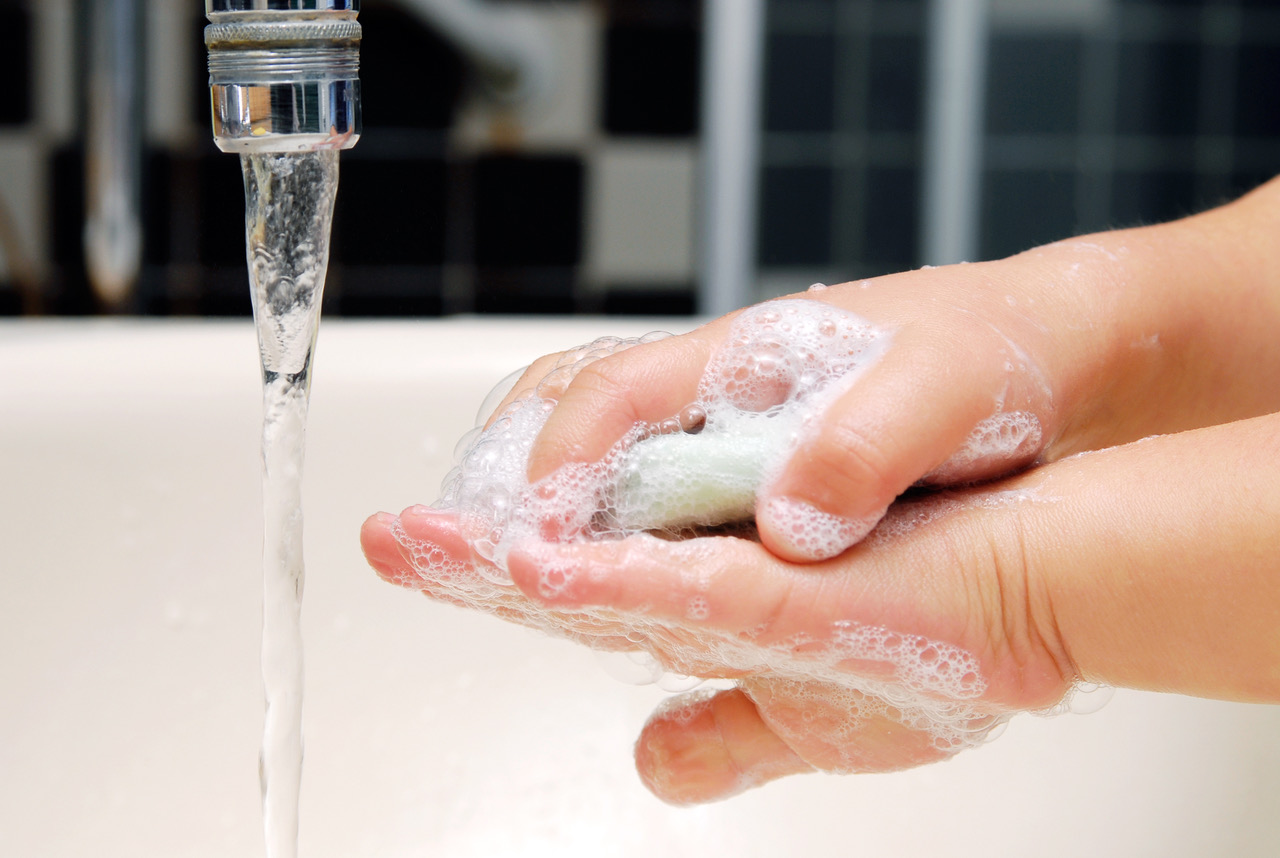Is one really better than the other?

Hand Sanitizer Vs. Soap and Water
We live in the age of convenience. We can heat food up in seconds, communicate in seconds, and even clean our hands in seconds? Hand sanitizer is an incredibly convenient cleaning tool and many people keep them in their car or purse. However, which do you think is better for your health? Does washing your hands with soap and water prevent the spread of germs better or is hand sanitizer more effective?
Think about it. Someone you know has a cold and has just sneezed into their hands. They use hand sanitizer, call it good, and start preparing a meal. How comfortable are you going to feel eating that meal? Most likely, you would have preferred them to wash their hands with soap and water.
Doctor Recommendation?
Family medicine doctors recommend that you wash your hands with soap and water for the best results. The CDC states that soap and water is the most effective method for reducing bacteria on your hands. Compare that with hand sanitizers.
Hand sanitizers can actually have the opposite effect, especially if they don’t contain alcohol. They won’t kill all the germs but instead can encourage bacterial resistance and irritate your skin. Sanitizers that have 60% alcohol levels are better but still won’t get rid of all the bacteria including Cryptosporidium (parasitical bacteria), Norovirus (stomach flu), and Clostridium Difficile (colon infection). If you can’t get rid of these bacteria, then you will need to visit your family medicine clinic to get the treatment you need.
Hand sanitizers do still have a useful place and they are always better than nothing. However, they only do their best work when your hands are only slightly dirty. For example, working in an office would be a great place to use hand sanitizer. If your hands are visibly dirty, then you must use soap and water to clean them. Don’t use sanitizer after gardening, camping, or exposure to chemicals etc. Hand sanitizer wasn’t designed for that purpose.
There are some smart practices you should put in place to make sure you are washing your hands effectively. Here are the CDC’s recommendations:
When Should You Wash Your Hands
- During, Before, and After Preparing Food
- Before Eating
- Caring for a Sick Person; before and after
- Treating a Wound; before and after
- After Using the Bathroom
- Following Blowing Your Nose, Coughing, or Sneezing etc.
- When Touching an Animal or Animal Waste.
- After Touching Garbage
How Should You Wash Your Hands
- Use Clean, Running Water to Get Your Hands Wet
- Lather Up With Soap – including the Backs of Your Hands and Fingernails
- Scrub for at Least 20 Seconds – Hum through “Happy Birthday” Twice
- Rinse Hands under Clean, Running Water
- Dry Using a Clean Towel or Air Dry
No one likes getting sick and having to visit their family medicine clinic. To prevent getting sick or spreading illness, don’t rely solely on hand sanitizer. Instead, wash your hands with soap and water when you can. Doing so will keep you and your loved ones healthier. If you have any other questions please reach out to us via our contact form.

